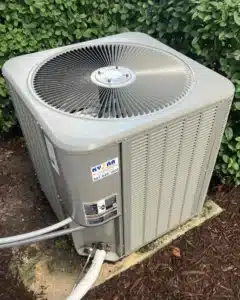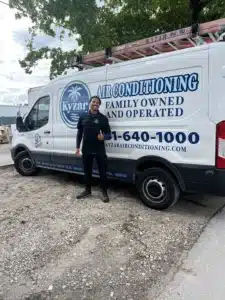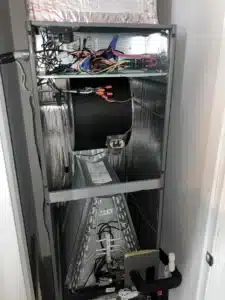How Aging HVAC Equipment Impacts Energy Bills
In a warm coastal climate like West Palm Beach, air...
When it comes to installing a new air conditioning system in your Florida home, understanding SEER ratings is crucial. SEER, or Seasonal Energy Efficiency Ratio, is a key metric that determines the efficiency of your AC unit. Knowing what SEER ratings mean and how they impact your cooling costs can help you make an informed decision that ensures comfort and savings. Here’s a comprehensive guide to SEER ratings and their importance in choosing the right AC system.
The SEER rating measures the cooling output of an air conditioning system divided by the total electric energy input over a typical cooling season. Essentially, it indicates how efficiently the unit converts electricity into cooling power. The higher the SEER rating, the more efficient the air conditioner is. For instance, a unit with a SEER rating of 16 is more efficient than one with a SEER rating of 13.
Florida’s hot and humid climate means air conditioning is a necessity for most of the year. High SEER ratings can significantly impact your energy consumption and overall cooling costs. Here are key reasons why SEER ratings are important:
The minimum SEER rating for new air conditioning units varies by region. In Florida, the minimum SEER rating is typically 14. However, many homeowners opt for units with higher SEER ratings, such as 16 or 18, to maximize efficiency and savings.
While higher SEER ratings offer better efficiency, they also come with higher upfront costs. Here are factors to consider when determining the best SEER rating for your new AC system:
Understanding SEER ratings is essential for making an informed decision when installing a new AC system in Florida. Higher SEER ratings offer improved energy efficiency, reduced environmental impact, and enhanced comfort, making them a wise investment for many homeowners. However, it’s important to balance the initial cost with long-term savings and consider your specific needs and usage patterns. For expert advice and professional installation, contact our experienced HVAC team in Florida. We’re here to help you choose the best AC system that meets your needs and ensures optimal performance in Florida’s demanding climate.

In a warm coastal climate like West Palm Beach, air...

Living in West Palm Beach means living with heat, humidity,...

Florida HVAC systems work harder than those in almost any...

Indoor air quality plays a major role in how a...

Ventilation is one of the most important yet often overlooked...

In Florida, air conditioning is not a luxury. It is...